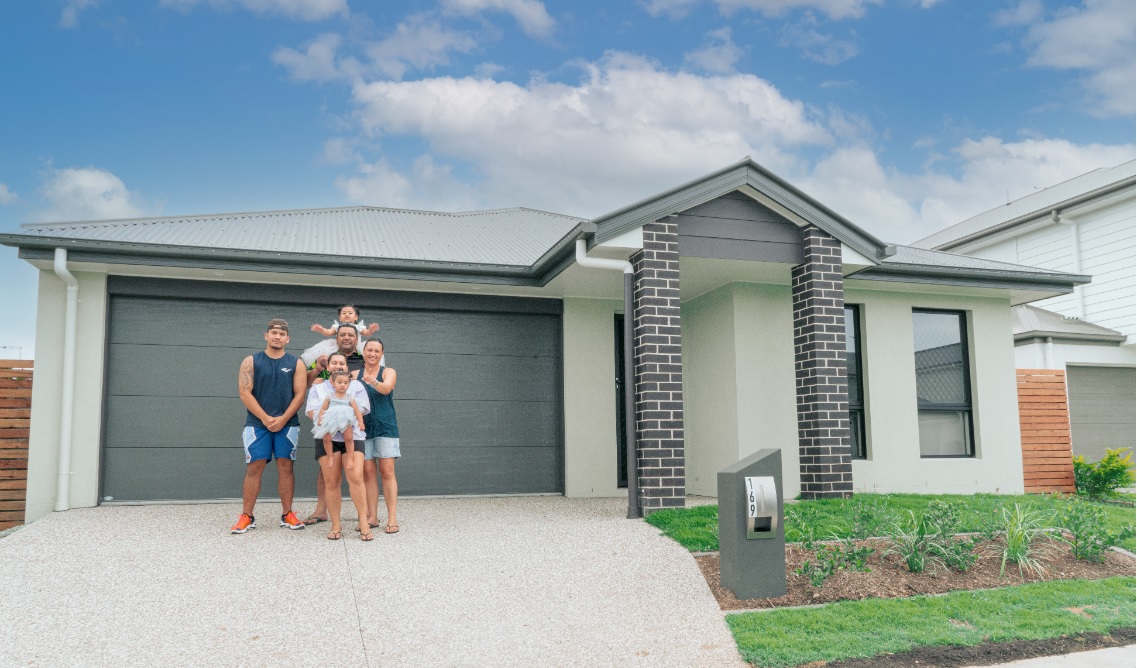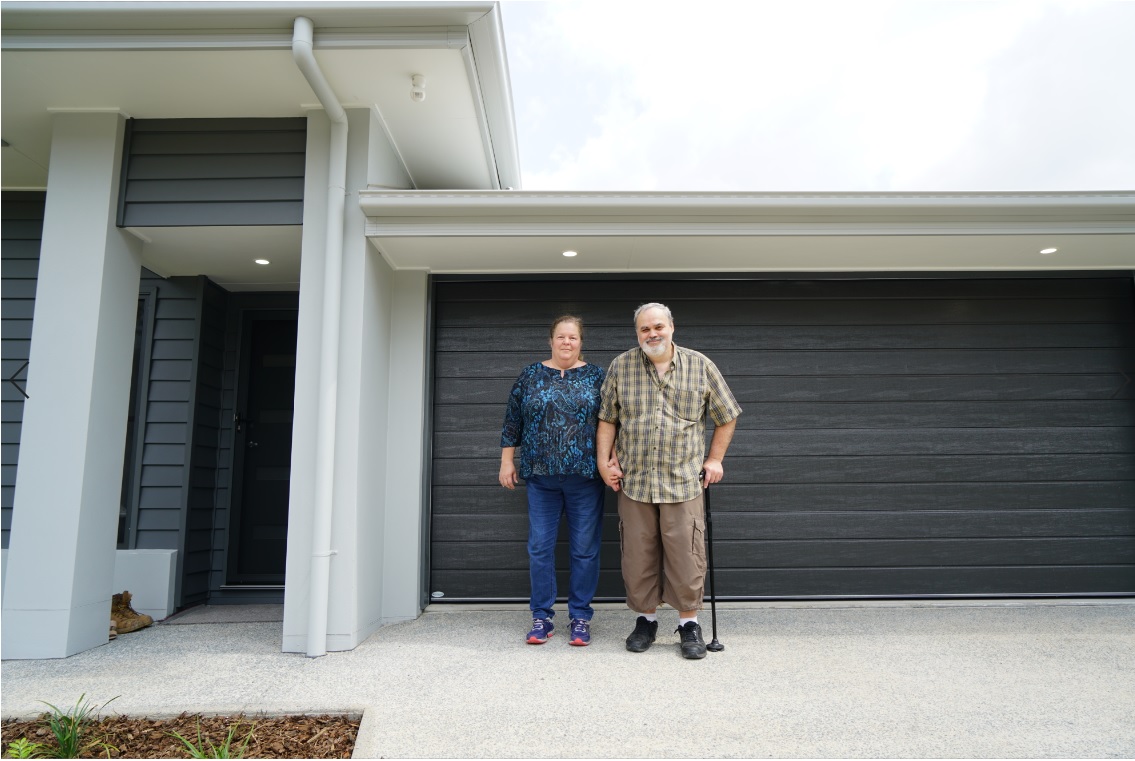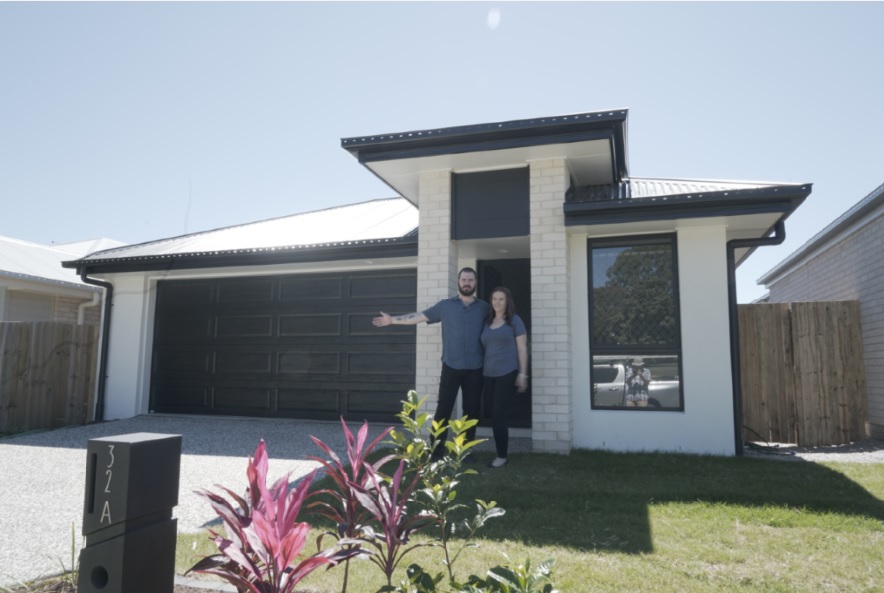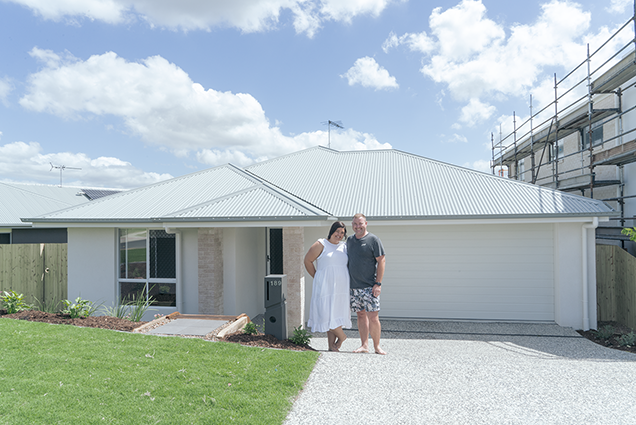If you’re looking to buy or sell a home, you’re going to need a home valuation. In layman’s terms, a home valuation often called a property valuation, is a report that tells the bank what your new home is worth. It gives them assurance that the loan they’re handing out is less risky and they’ll be able to recoup their costs if you default on your loan.
But understanding the valuation of a new home can be confusing. And can catch potential first home buyers out if they’re not aware of what to look for. So, in this article, we’re going to go over everything you need to know to understand the valuation of a new home. As well as how the No1 Property Guide team manages property valuations for our no or low deposit house and land packages.
What is a Property Valuation?
Like we said above, a property valuation tells the lender roughly how much they can sell the property for if the loan is defaulted. The property valuation is also how they set the LVR (loan to value ratio) for the home loan.
So, a property valuation is an important step in the home buying process and isn’t something you’re able to avoid. Of course, it’s not something to be afraid of. If you’re buying a new home, it’s a great way to know if you’re paying the right price. And as a seller, it’s probably the best way to understand the sort of price you could expect if you sold your home.
Who Does a Property Valuation?
The good news is that property valuations must be done by a registered and trained professional. To become an accredited valuer, a person will need to go through proper training. They then work under supervision for a year before being fully accredited. So, you can rest assured knowing that they have done their training and will be able to give you an accurate valuation.
A home valuation isn’t a hard and fast guarantee though. There are plenty of external factors that can affect the value of your home in any given period. But it gives both you and the bank a rough (but fairly accurate) idea of what the property is worth.
What Does a Property Valuation Include?
For a property valuation, the valuer will go through and assess the key areas and features. Some of these include:
- Number & type of rooms
- Floor size & plan
- Condition of property
- Comparable sales in the area
- Any issues with the property
They will also assess market conditions and what similar properties in the area are selling for.
There’s a lot of things that can affect a property valuation. So, ensuring your home is in good order and well-maintained is a vital part of getting the best valuation possible.
If you’re building through No1 Property Guide, the property valuation is done on the block of land and chosen floor plans. However, the same general steps and procedures still apply.
Are There Different Types of Home Valuations?
In reality, there is only one kind of home valuation that will affect your financial situation. A bank valuation is what a bank will use to calculate your LVR. And is what will impact your home loan. This is what we refer to as the property or home valuation.
Property appraisals on the other hand are done by real estate and only act as a guide for pricing. Banks will not use an appraisal to calculate LVR so do not rely on the appraisal as your only guide.
A property valuation can be a formality or the difference between getting approved for a home loan or not. Understanding as much as you can about the valuation process is a great way to increase your odds of a good result.
After helping thousands of renters become homeowners over the years, Darren Walters and the New Home Specialists at No1 Property Guide have built experience in handling property valuations. And we understand what it takes to get the result you want.
We tailor our no or low deposit house and land packages carefully so they value correctly for each client. And because we have the experience of thousands of new homes under our belts, we know what steps to take and who to contact to get a re-evaluation done in the event we disagree with a valuation as well.
Contact our New Home Specialists today to find out more about our home valuation process. Or complete our pre-qualification to begin your journey to owning your own home.
How to Improve Your Home Valuation?
If you’re selling your home and are looking for tips to improve your valuation, No1 Property Guide has you covered! There are a few simple ways you can help improve the valuation of your home before you go to sell it.
The simplest method is just making sure your property is clean and in good order before the inspection. And this means more than just vacuuming your living room in the morning! You’ll want to make sure to mow your lawn, trim your hedges, and tidy your garden. Little steps like this leave a good impression and make your property simply look more expensive, increasing its value.
One of the most popular ways to add more value to your home is with a renovation. Adding a patio, updating the kitchen, or redoing your bathroom is arguably the best way you can add additional value to your home.
Of course, a half-finished renovation is worse than no renovation at all! A home valuation is done with your property as it is during the inspection. Not how it will be once the renovation is finished. So, a half-finished bathroom is not what you want when the valuer is inspecting your home.
If you think the appraisal has come back lower than it should have, there are still steps you can take. Your first step is to make sure you get details on why you got that value. This will give you an idea of what to work on or resolve if it’s a basic issue.
Or, if you think there might be negligence on behalf of the bank or valuer, you can submit a formal written objection to your local government agency.
You May Like:
- 4 Tips on How to Plan an Edible Garden
- Say Goodbye to the Hunt for Pet Friendly Rentals
- What Do You Need for a Home Loan?
How to Interpret a Valuation of a New Home
Luckily, most of the time you won’t need to actually interpret a property valuation yourself. As the banks are usually the ones organising them, they will do the interpreting for you.
Of course, if your valuation came back lower than you thought it would then you might need to consult with the valuer. Or seek advice to understand the full breakdown of the report.







Leave a Reply
You must be logged in to post a comment.